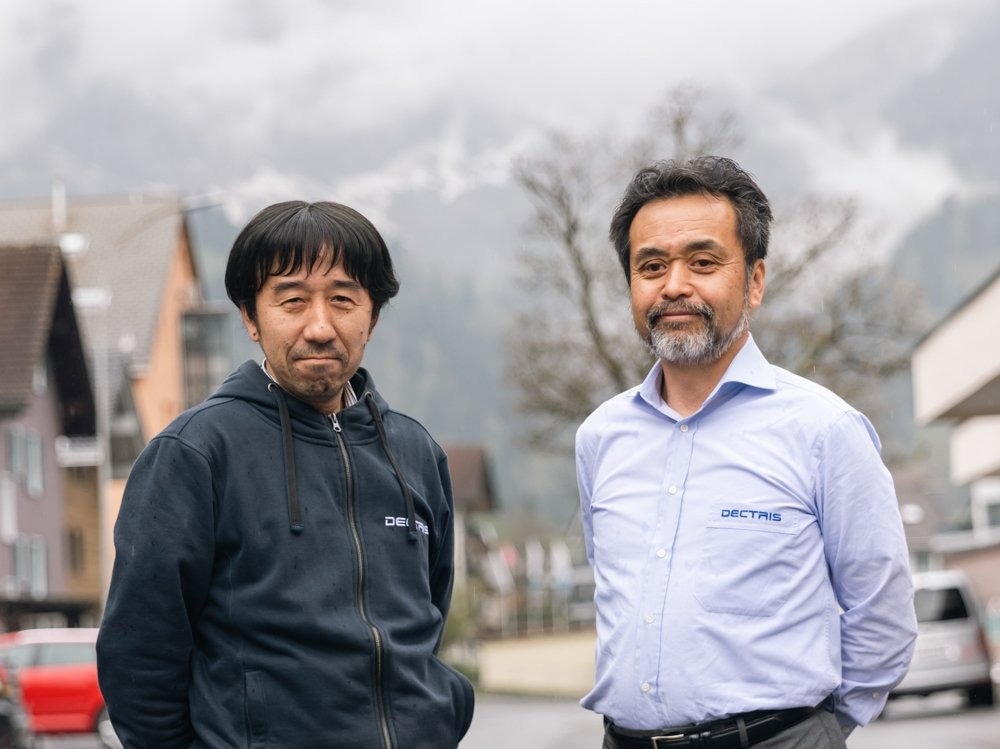HIMEJI, February 6, 2024 – DECTRIS Japan celebrates 3 years since its establishment in January 2021, facilitating the dialogue with national X-ray research facilities, and establishing itself as the new distributor of choice for Hybrid Photon Counting detectors in Japan.

Image Credit: Dectris Ltd.
The success of the DECTRIS technology in Japan today goes back to the origins of the collaboration, 17 years ago, between the Japanese X-ray analytical equipment manufacturer Rigaku and the Swiss start-up.
DECTRIS Ltd., world-leader in Hybrid Photon Counting for X-ray and electron microscopy research, established a Japanese subsidiary in January 2021. Its offices lay in Himeji, at a one hour distance from Japan’s biggest synchrotron radiation light source, SPring-8.
The research facility,owned and managed by Riken, counts among the world’s biggest synchrotrons, together with the European Synchrotron Research Facility (ESRF) in France and the Advanced Photon Source (APS) in the USA. DECTRIS Japan started with one employee, namely its General manager, and counts a field-system engineer.
The establishment of DECTRIS in Japan provides a huge benefit for SPring-8 and for the other Asian synchrotrons interested in the DECTRIS HPC technology. First, the company’s presence in Asia enabled a swift response to the customer with no or very little time difference and facilitates the business-to-customer relationships as synchrotrons can directly talk to DECTRIS, or do not need to go through an external distributor any more.
Second, DECTRIS can now attend most conferences in the region, talk to the customers in face to face and receive key insight about X-ray applications where the company leads, namely macromolecular crystallography (MX), X-ray Diffraction (XRD) and small-angle X-ray scattering (SAXS).
DECTRIS also gets to know the electron microscopy community in the region. These insights enable the DECTRIS Japan to better understand the problems that the Asian scientific community wants to solve and explore solutions with them.
The origins of DECTRIS Japan started when the market of scientific research moved away from conventional detectors towards Hybrid Photon Counting cameras (HPC). Back in 2005, the leading manufacturer of X-rays diffractometer in Japan, Rigaku Corporation (Rigaku Corp.) met a small research group of the Paul Scherrer Institute (PSI), Switzerland’s biggest research facility tested a PILATUS 100K detector and recognized its superior performance to a conventional X-ray detector.
The group then founded DECTRIS in 2006 as a PSI spin-off and started providing a HPC detector to Rigaku.
“DECTRIS assigned Rigaku as a distributor to sell its novel technology to Japanese synchrotrons, because the Japanese legislation purchases an instrument from foreign countries through a Japanese distributor or agent”. Takeyoshi Taguchi, General Manager of DECTRIS Japan, has been a Rigaku main contact for DECTRIS. “This enabled me to learn a lot about DECTRIS detectors and understand their customer base in Japan”.
Rigaku has sold hundreds of PILATUS and PILATUS3 detectors integrated into their high-performance X-ray apparatus and helped DECTRIS to sell HPCs to Japanese synchrotron facilities until DECTRIS Japan was established in 2021.
In three years, DECTRIS Japan successfully established itself as the distributor of HPC detectors in Japan, and as the successor of Rigaku. The fast-growing company is now adapting to changes in the market and has identified a lot of potential in neighboring countries, such as Taiwan and South Korea.
About DECTRIS
DECTRIS develops and manufactures the most accurate X-ray and electron cameras to spark scientific breakthroughs around the world. While photographic cameras capture visible light, DECTRIS cameras count individual X-ray photons and electrons.
DECTRIS is the global market leader at synchrotrons. Our efficient detector systems help scientists achieve high-quality results also in their laboratories. Our detectors played for example a decisive role in the determination of the structures of the coronavirus. The DECTRIS electron detectors create unique opportunities in material science, and we offer novel solutions for medical applications. We support researchers everywhere from our offices in Switzerland, Japan and the United States.